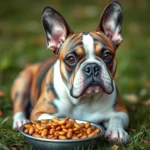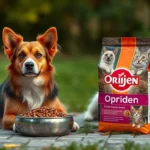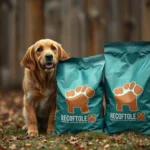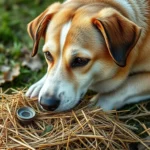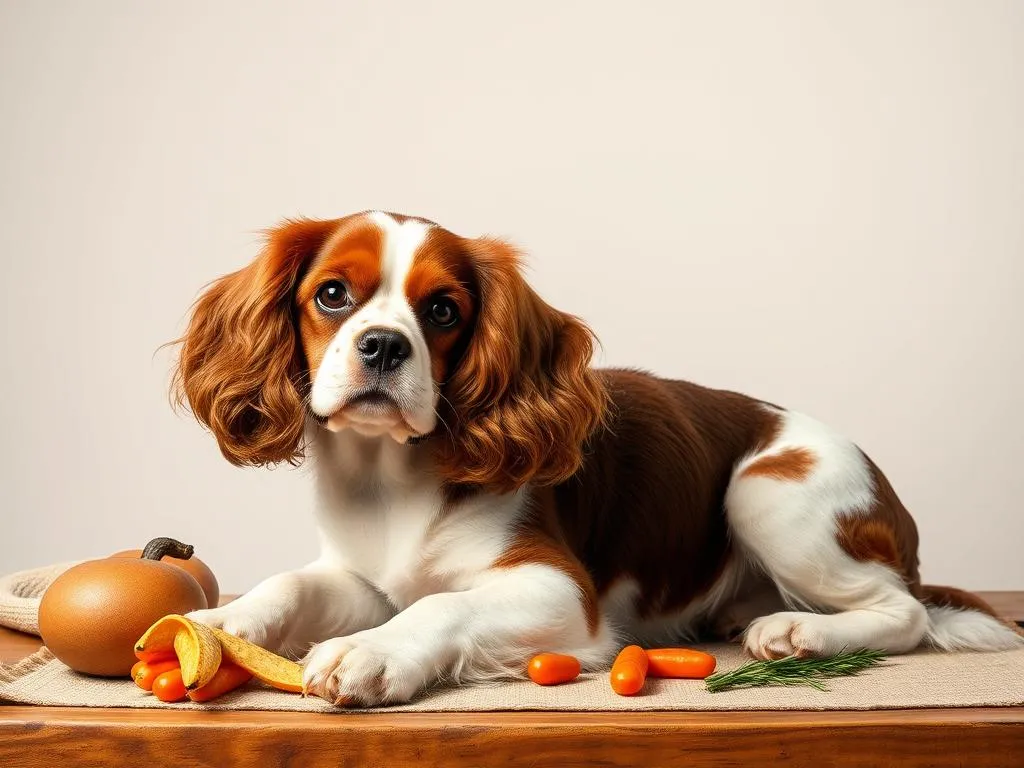
Introduction
Proper dog nutrition is vital for the overall health and well-being of our canine companions. Each breed has unique characteristics that influence their dietary needs, making best foods for Cavalier King Charles Spaniels a crucial topic for owners of this affectionate breed. Cavalier King Charles Spaniels are known for their loving nature and charming appearance, but they also have specific nutritional requirements that should be met to ensure a long, healthy life.
In this article, we will explore the nutritional needs of Cavalier King Charles Spaniels, discuss key nutritional components, recommend the best foods for them, and address special considerations for this breed. By the end, you’ll have a thorough understanding of how to properly feed your Cavalier King Charles Spaniel.
Understanding the Nutritional Needs of Cavalier King Charles Spaniels
General Nutritional Requirements
To formulate a well-balanced diet for your Cavalier King Charles Spaniel, it’s essential to understand their general nutritional requirements.
- Macronutrients: These include proteins, fats, and carbohydrates. Each plays a critical role in maintaining a dog’s health.
- Proteins are essential for muscle development, tissue repair, and immune function.
- Fats provide a concentrated source of energy and are necessary for healthy skin and coat.
-
Carbohydrates serve as a quick source of energy and aid in digestion.
-
Micronutrients: Vitamins and minerals are crucial for various bodily functions. They support everything from bone health to metabolic processes.
Specific Needs for Cavalier King Charles Spaniels
Cavalier King Charles Spaniels have specific characteristics that influence their nutritional needs. They are small, active dogs with a friendly disposition, but they are also prone to certain health issues, such as heart disease and obesity.
- Heart Health: Given their susceptibility to heart conditions, maintaining a diet rich in omega-3 fatty acids can support cardiovascular health.
- Weight Management: Because they can easily gain weight, it’s essential to monitor their calorie intake carefully.
Understanding these traits will help you choose the best foods for Cavalier King Charles Spaniels that meet their unique needs.
Key Nutritional Components for Cavalier King Charles Spaniels
Proteins
High-quality protein is the backbone of any dog’s diet, especially for the Cavalier King Charles Spaniel.
- Importance of High-Quality Protein Sources: Protein is crucial for muscle maintenance and overall health. It aids in cell repair and growth.
- Recommended Protein Sources: Opt for lean meats such as:
- Chicken: A great source of protein that is easy to digest.
- Fish: Rich in omega-3 fatty acids, beneficial for skin and coat health.
- Lamb: A good alternative for dogs with sensitivities to more common proteins.
Fats
Healthy fats are essential for energy and maintaining a shiny coat.
- Role of Healthy Fats in Energy and Skin Health: Fats provide a concentrated source of energy and aid in the absorption of fat-soluble vitamins.
- Recommended Sources: Look for foods containing:
- Fish oil: Provides essential fatty acids that support heart health.
- Flaxseed: A plant-based source of omega-3 fatty acids.
Carbohydrates
Carbohydrates provide the necessary energy for your Cavalier King Charles Spaniel, especially for their active lifestyle.
- Importance of Digestible Carbohydrates for Energy: Opt for complex carbohydrates that are easy to digest.
- Recommended Carbohydrate Sources: Consider including:
- Sweet potatoes: A nutritious source of fiber and vitamins.
- Brown rice: Offers energy and is gentle on the digestive system.
Vitamins and Minerals
Essential vitamins and minerals are necessary for maintaining overall health and preventing deficiencies.
- Essential Vitamins and Minerals for Overall Health: Look for foods that contain:
- Vitamin E: Supports immune function and skin health.
- Calcium: Crucial for bone health.
- Recommended Supplements If Necessary: If your dog is on a homemade diet, consult your vet about potential vitamin and mineral supplements.
Best Foods for Cavalier King Charles Spaniels
Commercial Dog Foods
Finding high-quality commercial dog food is essential for your Cavalier King Charles Spaniel’s health.
- Overview of High-Quality Commercial Dog Foods: Look for brands that list meat as the first ingredient and avoid fillers like corn and wheat.
- Recommended Brands Specifically for Cavalier King Charles Spaniels:
- Royal Canin Cavalier King Charles Spaniel Adult Dry Dog Food: Specifically formulated for the breed, this food supports heart health and maintains healthy weight.
- Hill’s Science Diet Small Paws: A great option for small breeds, formulated with high-quality ingredients for balanced nutrition.
Homemade Diets
While commercial foods are convenient, some owners prefer homemade diets tailored for their dogs.
- Benefits and Risks of Homemade Dog Food: Homemade diets can provide fresh ingredients, but they can also lead to nutritional imbalances if not properly formulated.
- Sample Recipes Tailored for Cavalier King Charles Spaniels:
- Chicken and Rice Recipe:
- 1 cup cooked chicken (shredded)
- 1/2 cup cooked brown rice
- 1/4 cup steamed carrots
- Mix together and serve in moderation.
Raw Diets
The raw feeding trend has gained popularity among dog owners.
- Overview of Raw Feeding: Raw diets often include raw meat, bones, fruits, and vegetables.
- Pros and Cons of a Raw Diet for This Breed:
- Pros: Can enhance coat quality and energy levels.
- Cons: Risk of bacterial contamination and nutritional imbalances if not carefully managed.
Special Considerations for Cavalier King Charles Spaniels
Age-Related Nutritional Changes
As your Cavalier King Charles Spaniel ages, their nutritional needs will change.
- Nutritional Needs for Puppies, Adults, and Seniors:
- Puppies require higher protein and fat levels for growth.
- Adults benefit from balanced nutrition to maintain energy levels.
- Senior dogs may need lower calories and supplements for joint health.
Weight Management
Maintaining a healthy weight is critical for this breed.
- Importance of Maintaining a Healthy Weight: Obesity can lead to various health issues, including heart disease.
- Tips for Portion Control and Healthy Treats:
- Measure food to avoid overfeeding.
- Offer healthy treats like carrots or small pieces of apple instead of calorie-dense options.
Food Allergies and Sensitivities
Cavalier King Charles Spaniels can be prone to food allergies.
- Common Food Allergies in Cavalier King Charles Spaniels:
- Chicken, beef, and grains are common allergens.
- Signs of Food Sensitivity and How to Address Them: Watch for symptoms like itching, digestive upset, or chronic ear infections. If you suspect a food allergy, consult your vet for an elimination diet.
Transitioning to New Foods
Importance of Gradual Transition
When changing your dog’s diet, a gradual transition is crucial.
- Risks of Sudden Diet Changes: Sudden changes can lead to digestive upset or food aversions.
Steps for a Successful Transition
To successfully transition your Cavalier King Charles Spaniel to a new food:
- Start with a mix: Begin with 25% new food and 75% old food.
- Gradually increase: Over a week, gradually increase the new food while decreasing the old.
- Monitor for Reactions: Keep an eye on your dog’s stool and overall health during the transition.
Frequently Asked Questions (FAQs)
What should I avoid feeding my Cavalier King Charles Spaniel?
Avoid foods that are toxic to dogs, such as chocolate, grapes, onions, and garlic. Additionally, steer clear of foods high in fillers and artificial preservatives.
How often should I feed my Cavalier King Charles Spaniel?
Most adult Cavalier King Charles Spaniels thrive on two meals per day. Puppies may require three to four meals a day to support their growth.
Can I mix wet and dry food?
Yes, mixing wet and dry food can offer variety and enhance palatability. Just be sure to monitor overall calorie intake to avoid overfeeding.
Conclusion
Tailored nutrition is essential for the health and happiness of Cavalier King Charles Spaniels. By understanding their unique dietary requirements and selecting the best foods for Cavalier King Charles Spaniels, you can help ensure they live a long, healthy life. It’s always wise to consult with a veterinarian for personalized dietary advice, as they can help you navigate any specific health concerns or dietary restrictions. A balanced diet will keep your furry friend happy and thriving for years to come.
